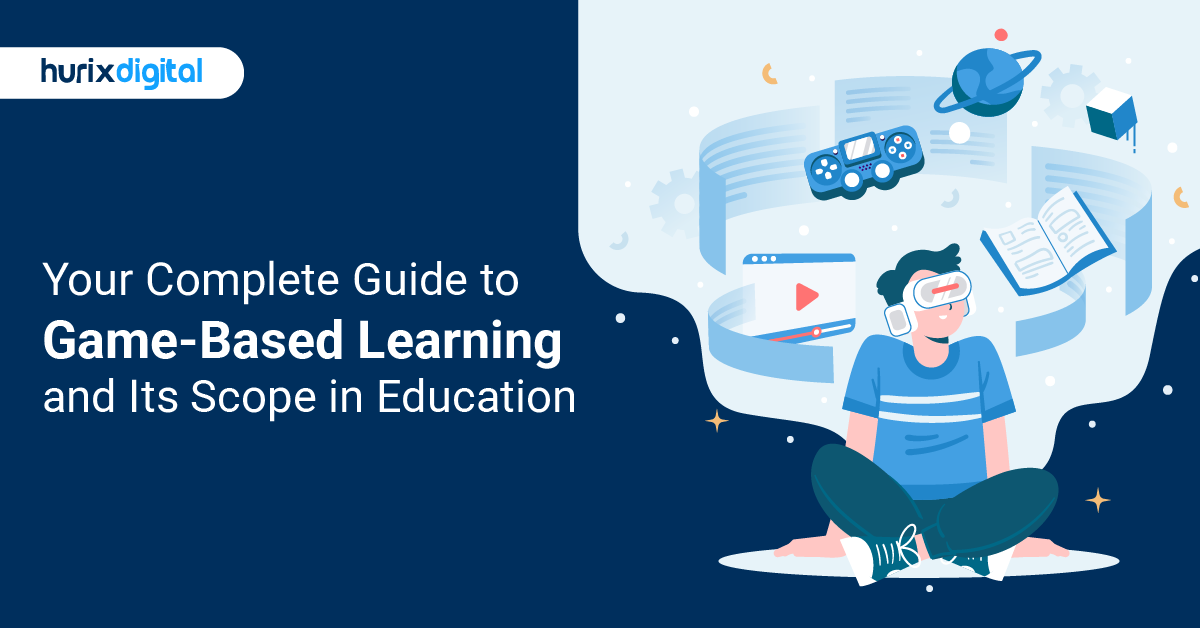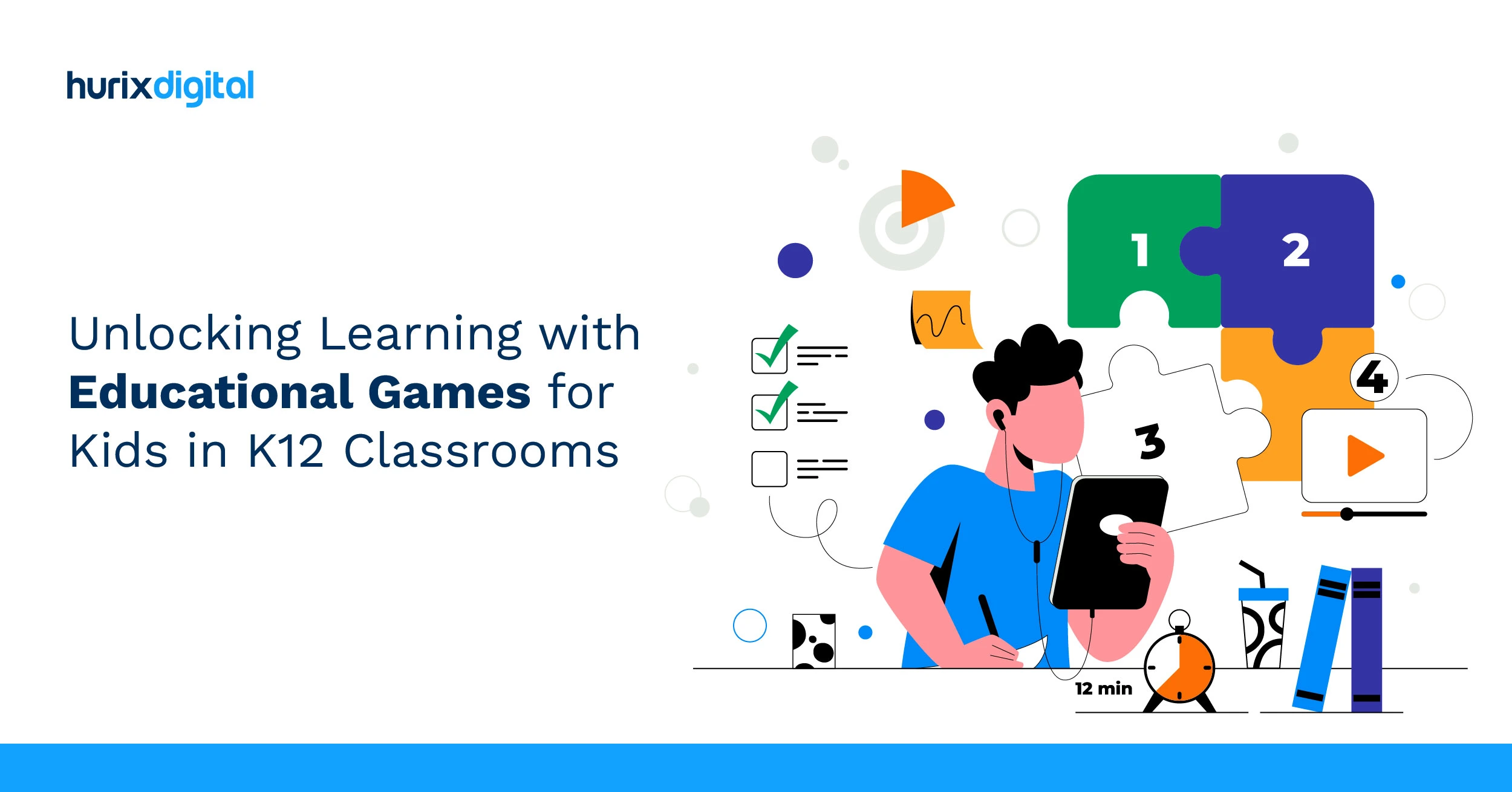
7 Key Benefits of Game-Based Education in a Digital World
Summarize with:
Traditionally, education has been quite linear. Taking the students from one academic content to another with the least possible deviation in teaching methods. However, times have changed now. The use of digital tools in education has been on the rise and this has made educators and students fall in love with game-based education.
Table of Contents:
- What is Game-Based Education?
- Seven Key Benefits of Game-Based Education
- Examples of Game-Based Learning in Education
- In Conclusion
- Frequently Asked Questions (FAQs)
What is Game-Based Education?
Game-based education is a type of innovative teaching methodology that defines learning outcomes. It aims at balancing academic content with gameplay to promote retention and application amongst students.
Game-based education primarily revolves around making academic curriculum more fun, engaging, and impactful by applying game design thinking.
From a refreshing teaching approach to ensuring better learning outcomes and retention among students, game-based learning has begun to revolutionize higher education. Let’s glance at the key benefits of game-based education.https://www.youtube.com/embed/KGi9-FA9x9M?si=bfzPj2Wv5-Tt8GyE
Seven Key Benefits of Game-Based Education
1. A Non-Authoritative Approach
Traditional teaching methods don’t always offer students the opportunity to voice their opinions or ideas. Game-based education is an exception to this.
Players are always required to give their inputs during games. So effectively, students are the co-pilots of the learning process. Through game-based education, students engage on a personal level with the content.
2. Driving Students to Mastery
Game-based education calls for constant skill improvement. Students cannot proceed to higher levels in the game without mastering the required specific skills. Students learn from active application – learning by doing, thus, game-based education ensures skill mastery.
3. Increasing Engagement & Retention
The theory of learning by doing states that students should interact with their learning environment to enhance their knowledge and skills. Games are the best engaging tools as they can transform students from passive participants to active ones. Game-based learning creates an immersive experience, making the students feel like a core part of the learning process.
Through games, students are engaged at a multisensory level. The audio-visual elements are more likely to be retained, imparting life-long learnings. Game-based education not only promotes student engagement but also helps in information absorption and retention.
4. Stimulates Logical Reasoning
Game-based education supports the visualization of 3-D models in real-time, making learning a lot more contextual and relevant to the students, which encourages them to interact more with the content and enjoy the learning process all along.
A virtually-enhanced world in game-based education encourages students to use their imagination and innovatively facilitates logical reasoning. Students are encouraged to think about new possibilities and solutions.
5. Simplifying Difficult Concepts
Game-based education functions as an excellent way to make abstract topics easy to understand. This allows students to approach any subject topic from a different perspective. The use of artificial intelligence and augmented reality simplifies the most complicated of concepts and helps students understand the dynamics much better.
6. Delivering an Enriched Learning Experience
Game-based education brings your academic content to life. It makes learning fun and exciting. No matter how complex or simple the learning goal is, game-based education always delivers an enriched learning experience.
Students feel less stress and boredom and look forward to absorbing more information. Game-based education makes students excited about learning and promotes a healthy learning environment.
7. Learning Through Familiar Devices
Students are free to choose the devices they want to learn on. Game-based education runs smoothly through devices that students are already familiar with. This adds on to the comfort quotient and thus, transforms into improved productivity and knowledge retention.
Also Read: Top 5 Online Course Platforms for Educational Institutions
Examples of Game-Based Learning in Education
Incorporating game-based education in the system is quite a creative task. Let us look at some examples and understand how game-based learning is used to teach different subjects effectively.
1. Subject: Civics Education & City Building
Game: OurCity
OurCity is a free Facebook game for learning. This game aims at developing students with civic knowledge and help them become responsible citizens. The game allows students to build and develop the city with available resources. Thus, through game-based education, students develop the skillset required to meet the needs of the people who live with them.
2. Subject: Online Marketing
Game: Plantville
Plantville is an online game-based learning tool developed by Siemens. This game allows learners to run a complete virtual factory. They get to act as a factory manager and carry out all the required tasks to ensure the smooth operation of the factory with the additional responsibility of ensuring worker safety. Through this game, students will learn to improve their efficiency.
3. Subject: Biology
Game: Bionigma
Bionigma is a puzzle game for solving protein multiple sequence alignments (MSA). This game develops the student’s ability of natural pattern recognition by enabling them to identify and align similar objects accurately. Through this game, students can directly support biological research by solving protein MSA problems.
4. Subject: Fire Safety
Game: Teso Compliance Board Game
This game allows students to move around the board and complete all the challenges to make fire safety training interesting. Through this game, students will develop the knowledge and skills required to handle fire breakouts.
5. Learning Apps – With Leaderboards & Badges
There are a lot of K-12 Learning Apps that have built-in badges, assessments, quizzes and levels to cross complete with leaderboards. They effectively gamify the learning experience and ensure that the student engagement and retention rates are high.
Also Read: K-12 Education in the Post-COVID Era
In Conclusion:
With advancements in technology, the future of game-based education looks bright. Institutions are embracing game-based education to revitalize their teaching strategies. This kind of teaching technique helps students develop and improve their practical thinking skills. Thus, education and gaming certainly should go hand-in-hand. Game-based education is the way forward!
Suggested Reads:
- Digital Solutions for Universities and Higher Education Institutions
- 9 Reasons for the Growth of eLearning in Education
- Why Should Colleges and Universities Develop eLearning Programs?
- How Can Institutions Improve their Higher Education Course Enrolment
- Best eLearning Solutions for Digital Natives
- How to Create and Deliver the Best K-12 Learning Solutions
Frequently Asked Questions (FAQs)
Q1. What is game-based education?
A. Game-based education is an innovative teaching methodology that incorporates gameplay elements into the learning process.
Q2. How does game-based education support logical reasoning?
A. Game-based education supports logical reasoning by allowing students to visualize and interact with 3-D models in real-time.
Q3. How does game-based education simplify difficult concepts?
A. Game-based education simplifies difficult concepts by presenting them in an interactive and engaging manner. It provides alternative perspectives and utilizes technologies like artificial intelligence and augmented reality to simplify complex topics.
Q4. What is the impact of game-based education on student engagement and retention?
A. Game-based education significantly increases student engagement and retention.
Q5. How does game-based education deliver an enriched learning experience?
A. Game-based education brings academic content to life and makes learning more exciting and enjoyable. It creates dynamic and interactive environments that cater to different learning styles.
Summarize with:

Senior Vice President
A Business Development professional with >20 years of experience with strong capability to sell new solutions and develop new markets from scratch. New Market Entry Specialist with experience working in the largest emerging markets. Exceptional experience in conceptualizing, ideating and selling new learning technologies like VR AR, etc. across multiple industry verticals.
 A Space for Thoughtful
A Space for Thoughtful 



